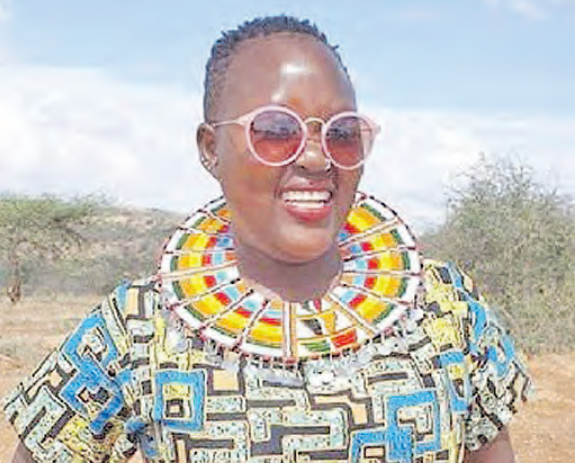Rachel Mwikali’s kind of feminism is radical and confrontational, but also kind and compassionate to the deprived living in Mathare slums.
She says that’s why she founded the Pussy Power movement.
She believes that for a long time feminism has been associated with the middle class who do not relate to the struggles of the everyday woman who hustles hard to put food on the table for her children.
Her movement, she adds, is about helping women embrace their femininity at the grassroots and use the attributes as a survival instinct.
“Many time when women become victims of femicide or sexual and gender-based violence, the perpetrator gets humanised while the victim is violated even in death with questions like, ‘why was she aggressive?’ ‘Why did she dress that way?’ ‘Why was she there at that time?’” Mwikali says.
“At other times, women get easily ashamed when perpetrators talk about our vagina and breasts. That is why I decided I will call my movement Pussy Power to demonstrate that we bot only embrace our anatomy but also can use it to advance our rights and claim that which is ours.”
But that’s not all about her movement. It’s also about empowering Mathare.
“We don’t just do street protests, we also do street parties, clean our environment, share our food and monies, smoke out criminals who give Mathare a bad name and also stand for each other,” she adds.
Mathare is a collection of informal settlements in Nairobi and home to about 500,000 people.
It is one of the largest informal settlements in the city. About 180,000 people live in Mathare Valley alone, which is among the oldest of the informal settlements that fall under the name Mathare.
It is adjacent to Mathare River. When extreme flooding ravaged the slums earlier this year, Mwikali’s team started a community kitchen that served up to 500 hot meals per day for months.
April last year was the worst as the torrents tore through the shanty houses in the dead of the night as residents slept, sweeping their household items into the Mathare River.
It also swept tens of the people whose search ensued the following day.
Deaths also occurred, with one of the fatalities being Benna Buluma, the activist also known as Mama Victor, who succumbed. “Our Pussy Power ideology is bout caring for our local Mathare community.
Here, we are all poor, uneducated and hungry. We mostly know each other and come to each other’s aid,” she said.
Mwikali and the community members mobilised for help from partners and set up a community kitchen to serve the displaced and the vulnerable members of the local community.
“The kitchen is still running, thanks to kind support from wellwishers who believe in supporting vulnerable people,” she said.
“When I get a project, I ensure those I work with come from my local community because I know the poverty and struggle in Mathare.”
Her movement is anchored on her organisation named the Coalition for Grassroots Human Rights Defenders, and through she champions intersectionality of rights, including LGBTQ rights.
Born and bred in the Mathare slums, Mwikali has come face to face with discrimination and abuse.
She says her successful activism is informed by her experience as a child, and that at the age of13, a man 10 years older than her sexually abused her.
“The saddest part is the community did not protect me. In fact, they blamed me for engaging in sex at a young age,” she said.
But in a bid to turn the lemons into lemonade, she used the experience to champion for women rights.
“I learnt to speak up for myself and others who may not have the courage.”
Her reward, she says, is when the marginalised get justice. At the heart of her campaign is turning women’s perceived vulnerability and weaknesses into strength.
“Data shows that it will take more than 100 years to attain gender equality. It is a fight that we must engage in creatively and deliberately no matter the setbacks,” Mwikali adds.
She is also part of the #EndFemicideKE. Her activism has seen her count her losses and keep some wins.
In 2016, aged 24, Mwikali was named the global Lobbyist for Change by a Swedish nongovernmental organisation known as We Effect. The prize is awarded to a lobbyist or activist working for the rights of people living in poverty.
The panel selecting her for the prestigious award had the then Prime Minister of Sweden, Ingvar Carlsson.
She also sits on the Amnesty International board, the Royal Danish Embassy Youth Sounding board and the Youth Advisory board of the Kingdom of Netherlands












